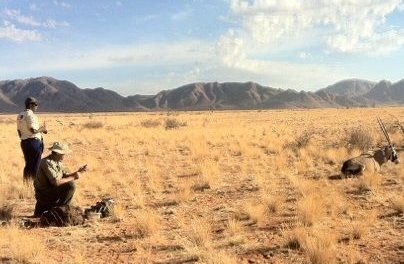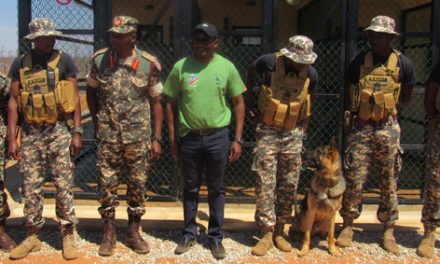
German government offers support to land reform
The German government has established a support policy to assist the Ministry of Lands and Resettlement in the equal and fair distribution of land to disadvantaged communal farmers.
The GIZ “Support to Land Reform” project is implemented on behalf of the German Federal Ministry for Economic Cooperation and Development (BMZ) and was initiated to combat the challenge of land reform the country is facing, and distribute the land fairly and protect the land use rights.
The first phase of the project started in 2003 and was envisaged to come to an end in June 2014; however, it is likely that the project will be extended until July 2017. Currently in its 3rd phase, the project supports the Ministry of Lands and Resettlement with the communal land rights registration process in all communal areas in Namibia.
The project has provided technical and financial assistance for training new communal land boards in the country, organised communal land rights registration awareness campaigns in several regions and has provided technical support in terms of staff to the Windhoek and Oshakati offices and previously in Mariental and Rundu.
Through land reform, the Government aims to redistribute land from the large-scale commercial sector to landless people and those with only marginal access to land. The reform is seen as the prerequisite for social and economic development, and is implemented through two parallel land reform programmes, communal land reform and commercial land reform.
Communal land reform involves improved control and regulation of the communal areas or ‘tribal’ land under traditional authority through communal land rights registration, whilst commercial land reform involves the redistribution of commercial farmland into previously disadvantaged hands through the Affirmative Action Loan Scheme and National Resettlement Programme.
The project aims to develop strategies and policy recommendations for land reform, conceptualise and coordinate a constitutionally implemented land reform and also build capacity development for key stakeholders of land reform. Additionally, GIZ aims to provide assistance for post-settlement support to resettlled farmers through the Framers Support Project (FSP) which is implemented by the Agricultural Bank of Namibia with financial and technical support provided by the Government of the Federal Republic of Germany.
Since its inception, the project has supported some of the bills of the Ministry of Lands and Ressettlement such the Valuation Bill, Land Bill as well as the Deeds Bill.Through a mentorship programme, more than 3500 farmers have received training from 37 mentors. Integrated Land Use Plans for Karas and Hardap regions have also been established through the project.
Furthermore, the GIZ is currently supporting the arts project ‘Land Matters in Art’, which is aimed at bringing together civil society and stakeholders in the land reform process in general. Through this project, it is hoped that fruitful and constructive discussions will be initiated on the land reform process. The arts exhibition, Land Matters in Art kicked off on Wednesday, 21 March 2013 and will run until 26 April 2013.
In order to ensure capacity development in the Ministry of Lands and Ressetlement, the project regularly sends Ministry staff to international conferences, where the staff members are encouraged to present on the work and achievements of the Ministry of Lands and Resettlement. Such conferences notably include the annual World Bank Conference on Land and Poverty in Washington, DC and the Geospatial World Forum in the Netherlands.
The project currently has a matrix system through which is monitoring the achievements of its indicators, based on the objectives. A comprehensive capacity assessment of the project will take place mid-2013 to determine the successes and challenges of the project. This assessment will be done in close cooperation with the Ministry of Lands and Resettlement. Findings from the assessment will be used to determine the structure and content of the new phase, and will enable the project to improve its monitoring and evaluation system.











































